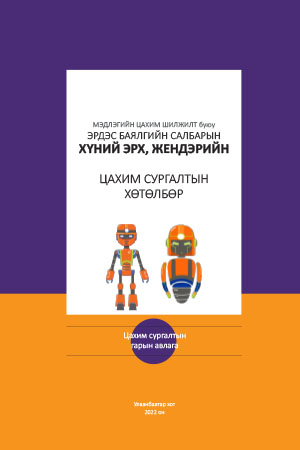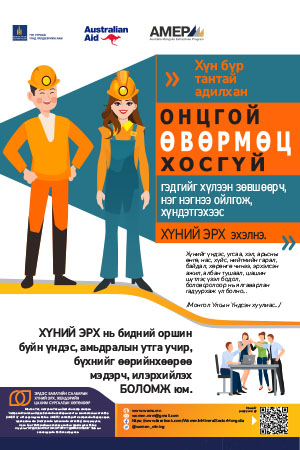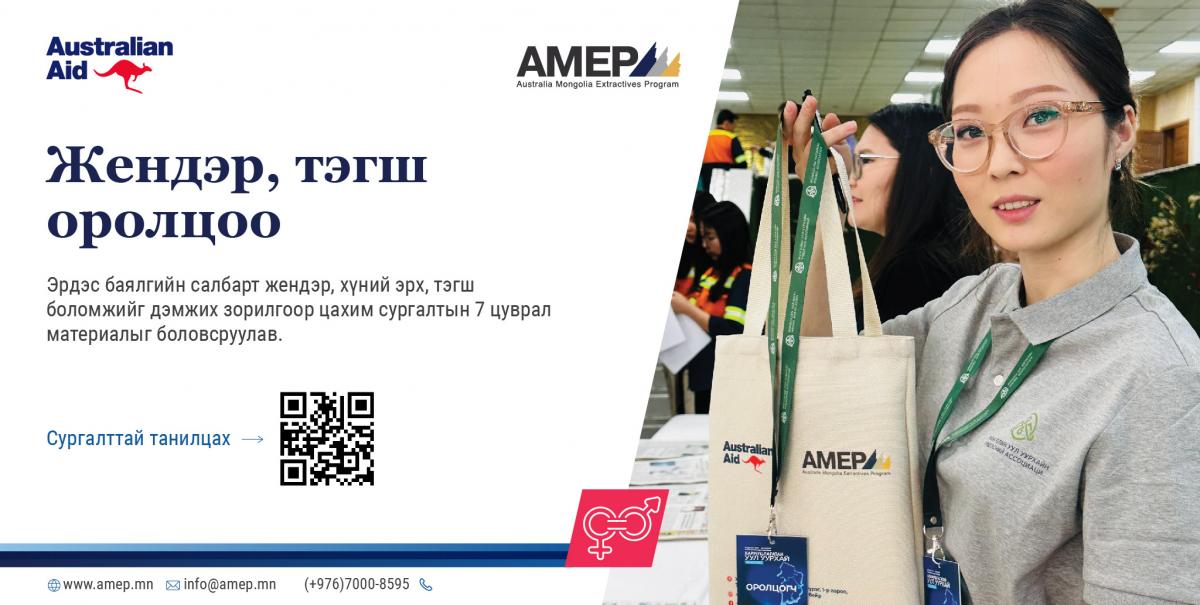Nov 16, 2023
7-Module E-Learning Program on Gender and Human Rights in Mongolia's Extractives Sector
There are many benefits to taking this program, both for your company and for your personal development. For your company, promoting gender equality, human rights, and inclusion can lead to a more diverse and inclusive workplace, which has been shown to improve productivity, creativity, and employee satisfaction. It can also improve your company's reputation and help attract top talent.
For you personally, taking this program can help you develop valuable skills such as empathy, communication, and leadership. It can also help you better understand the perspectives of others and promote a more inclusive work environment.
We encourage all industry members to take this free online program and participate in creating a more inclusive and equitable workplace. We look forward to having you participate!
1.1 Who I am? ( part I)
1.2 Who I am? ( part II)
1.3 Who I am? ( part III)
2.1 What are my rights and responsibilities? (part I)
2.2 What are my rights and responsibilities? (part II)
2.3 What are my rights and responsibilities? (part III)
3.1 What are the legal, social and economic guarantees of the environment in which I work and live? (part I)
3.2 What are the legal, social and economic guarantees of the environment in which I work and live? (part II)
3.3 What are the legal, social and economic guarantees of the environment in which I work and live? (part III)
4.1 Employee-friendly organization or the benefits to the organization value adapt human rights and gender sensitive policies (part I)
4.2 Employee-friendly organization or the benefits to the organization value adapt human rights and gender sensitive policies (part II)
4.3 Employee-friendly organization or the benefits to the organization value adapt human rights and gender sensitive policies (part III)
5.1 Employee-friendly workplaces or human rights and gender sensitive position (part I)
5.2 Employee-friendly workplaces or human rights and gender sensitive position (part II)
5.3 Employee-friendly workplaces or human rights and gender sensitive position (part III)
6.1 Human centered budgeting (part I)
6.2 Human centered budgeting (part II)
6.3 Human centered budgeting (part III)
7.1 Leadership, or human rights and gender-sensitive management (part I)
7.2 Leadership, or human rights and gender-sensitive management (part II)
7.3 Leadership, or human rights and gender-sensitive management (part III)
The following Handbook and Poster series for printing are available in the below
 |
 |
E-learning program on gender and human rights issues in the extractives sector (Mongolian) |
Poster series on gender and human rights in the extractives sector. |
The Gender Human Rights and Inclusion (GHRI), 7 Module on-line training program was launched in June 2022 and included saw a total of 1,068 mining company employees enrolled in the program from June to December of 2022, of which 683 studied via online and 385 offline in a classroom setting. Of surveyed participants 88% of the respondents said that their attitude towards GRHI changed more positively since attending the GRHI training, some 54% responded that their colleagues’ attitude towards GRHI changed more positively since attending the GRHI training.
The Ministry of Mines and Heavy Industry and the Women’s Association of Mining in collaborative partnership and with support from the Australia–Mongolia Extractives Program (AMEP2), (funded by Australia Aid and the Department of Foreign Affairs and Trade) have made the online Gender, Human Rights, and Inclusion training program and subsequent products possible.
Implemented by (AMEP II)
Funded by Australian Government, Department of Foreign Affairs and Trade
Partners: Ministry of Mining and Heavy Industry of Mongolia, Women in Mineral Sector NGO

